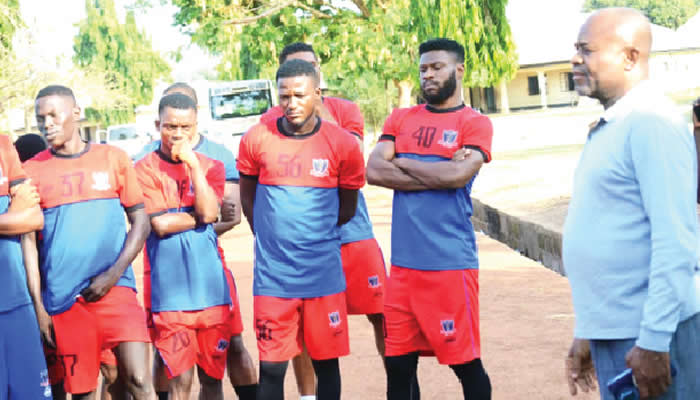The Crisis at Lobi Stars Football Club: Allegations of Match-Fixing, Internal Strife, and a Precarious Future
The Nigeria Premier Football League (NPFL) is currently grappling with serious allegations of match-fixing and betting impropriety surrounding Lobi Stars, a once-revered champion now teetering on the brink of relegation. The accusations, which surfaced through a radio interview with the club’s media officer, Emmanuel Ujah, have sent shockwaves through the league and prompted an internal investigation by the NPFL board. Ujah openly accused Lobi Stars players of engaging in match-fixing, alleging that they colluded with bettors to manipulate game outcomes for personal gain. He further claimed that these practices were brought to the attention of the club chairman, but the management chose to give the players the "benefit of the doubt," a decision that, according to Ujah, has now backfired spectacularly.
The allegations paint a grim picture of a club riddled with internal discord and a loss of ethical compass. Ujah’s claims suggest a systemic problem within the team, where players allegedly orchestrated losses and encouraged betting against their own club. The severity of these allegations, coupled with the club’s dismal performance on the field, has raised serious concerns about the integrity of the NPFL and the potential ramifications for the league’s reputation.
In response to the explosive accusations, the NPFL’s Chief Operating Officer, Davidson Owumi, announced the launch of an internal inquest. Owumi emphasized the need for a thorough and impartial investigation, recognizing the sensitive nature of the allegations and the importance of gathering concrete evidence before drawing conclusions. The NPFL’s swift response underscores its commitment to maintaining the integrity of the league and addressing any potential breaches of its rules and regulations.
Lobi Stars’ on-field woes have been well-documented. The team has endured a winless streak of 14 matches, a stark contrast to their championship pedigree. Their last victory dates back to December 14, when they narrowly defeated Plateau United 1-0. Since then, the team has spiraled downwards, currently languishing at the bottom of the league table with a meager 24 points after 31 games. This dismal performance has placed them firmly in the relegation zone, facing the very real prospect of dropping out of the top flight.
Beyond the match-fixing allegations, Lobi Stars’ struggles extend to off-field issues, including a revolving door of coaches and a lack of stability in their home ground. The club has cycled through five coaches this season alone, with the latest managerial change seeing Tony Bulus take the reins after Baba Ganaru’s departure. This constant shuffling of coaching staff has undoubtedly contributed to the team’s lack of cohesion and direction on the field. Adding to the instability, Lobi Stars have been forced to relocate their base multiple times, shifting from Lafia to Bauchi and finally settling in Enugu. This nomadic existence has further disrupted the team’s rhythm and hindered their ability to establish a sense of stability and belonging.
The allegations against Lobi Stars raise broader concerns about the prevalence of match-fixing in football. While the NPFL’s investigation focuses specifically on Lobi Stars, the case highlights the vulnerability of the sport to manipulation and the need for robust measures to prevent and detect such practices. The integrity of any sporting competition relies on fair play and the absence of external influences that could distort outcomes. Match-fixing not only undermines the credibility of the game but also erodes the trust of fans and sponsors.
The NPFL’s internal inquest will play a crucial role in determining the veracity of the allegations against Lobi Stars. If the accusations are proven, the league must take decisive action to punish those responsible and send a clear message that match-fixing will not be tolerated. The investigation should also examine the broader context surrounding the allegations, including the role of betting companies and the potential involvement of individuals outside the club. This comprehensive approach is essential to address the root causes of match-fixing and implement preventative measures to safeguard the future of the NPFL.
The outcome of the investigation and the subsequent actions taken by the NPFL will have far-reaching implications for Lobi Stars and the league as a whole. The club’s future hangs precariously in the balance, with relegation looming large. Beyond the immediate consequences, the case serves as a stark reminder of the importance of upholding ethical standards in football and the need for constant vigilance against the insidious threat of match-fixing. The NPFL must take this opportunity to strengthen its regulations, enhance its monitoring systems, and educate players and officials about the dangers of match-fixing and betting impropriety. By taking proactive steps, the league can protect the integrity of the game and ensure a fair and competitive environment for all clubs. The investigation into Lobi Stars is a crucial step in this process and its findings will shape the future of the NPFL.


